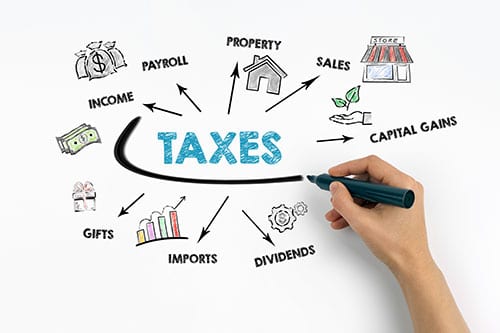Winning Tax Strategies for Businesses 2021
It is always wise to discuss tax strategies each year with your team, including your accountant. Earlier in the year is better, but it is never too late to discuss these critical items. You work very hard to bring in income, it is a tragedy to give more than is necessary to taxes.
The items included in this article are tax related strategies, and some of them may still assist if you have not yet filed for 2020 but are designed to include tax-saving approaches to 2021 and beyond. I like to remind you that taxes are a tug-o-war, and the IRS will let you “win” (keep more of your money) if you follow their rules carefully.
One or more of the strategies below may help your business to increase profits, decrease taxation and/or allow you as the owner to create more benefits and income for yourself.
1) Evaluate the Method of Taxation Set Up for Your Business—If your business has been growing, but was set up as a pass-through entity, where taxes and income pass through to the owners, you have probably become familiar with the deductions that are allowed for your business. For example, many business owners can deduct 20% of qualified income in calculating federal taxes. There are some limits on this, income caps, if you will, on certain businesses, and when your income exceeds those limits, the deduction is decreased or eliminated. Sometimes it makes sense to look at converting to a C Corporation, especially considering that the 2017 Tax Cuts and Jobs Act reduced taxes from 35% to a flat 21% for all C Corporations.
2) Set Up a Tax Payment Plan—Most businesses are required to file a quarterly report on taxes, including payments. Review with your accountant how you are paying your taxes to make sure that the money is available, whether that is a yearly payment, a quarterly payment, or setting up a monthly savings plan for taxes. Speaking from experience, I also set up some separate accounts so that I can set aside money for unexpected business expenses and force the business to live on less than it earns. I call this my “sleep at night” fund, it really does reduce anxiety.
3) Defer Some Expenses to Accelerate Income (or the Reverse)—Especially amid the economic challenges created by Covid, we may have to adjust in how we receive income. Putting off payments wherever possible will provide more cash for current needs or reducing income to pay bills now may give you more leverage with income for foreseeable expenses in the future. Do not let cash flow challenges lead your business into an insoluble problem.
4) Utilize Larger Deductions on Equipment Purchases—Beginning in 2017, the IRS has allowed 100% depreciation deductions on many types of business equipment. This allows you to deduct the entire depreciation during the year of purchase, rather than spreading it over a usable lifespan. Some types of used equipment as well as new equipment are allowed.
5) Create or Add to a Retirement Savings Plan—This benefit for owners and employees is part of the reason that businesses exist. While they are set up to provide goods and services to customers, if they are not ultimately profitable to the owners, they cannot survive. Talk with your accountant about implementing or improving on any retirement savings plan that is available through your company, needs change over the years, and plans may need to be adjusted. Also take advantage of making personal contributions to your plan, which can extend into the following year, up to the date of filing taxes.
6) Find the Best way to Deal with Losses—Many businesses have experienced losses recently, and the CARES act has allowed some small businesses to apply losses from 2018, 2019, or 2020 against income over the past 5 years, to potentially generate an immediate refund. Obviously, this is something to discuss with your accountant, and there may be additional forms to be filed to let the IRS know what your plan is to avoid having the potential refund from being carried back to previous years.
7) Make Sure that You are Current on Cares Act Provisions—The Coronavirus Aid, Relief and Economic Security (CARES) Act for small businesses includes provisions such as the Paycheck Protection Program to assist employers in covering their payroll. This is a loan, which must be repaid, and employers should not defer payment until the end. There is also a deferment provision for Social Security payroll taxes, which should be planned and set up for payment before the deadlines.
8) Make Some Charitable Contributions—The reason for charitable contributions is to give, and do positive things in your community, but it also provides you with deductions. It seems that when we also give back, we learn, and grow, and are rewarded. No matter how you are doing as a business, everyone benefits when we give, so let us create a plan and make it happen.
As mentioned above, it is never too late to discuss making changes to your tax plan, and the best time to make plans for the future is right now. We encourage you to meet with your accountant, discuss the items included here, and allow the conversation to lead into other areas that may not have been included in this article. It is our responsibility as business owners to create the best action plan for our business success, including our Tax Plan.
__________________________________________________
ihttps://www.ml.com/articles/5-end-of-year-tax-tips-for-small-business-owners.html

